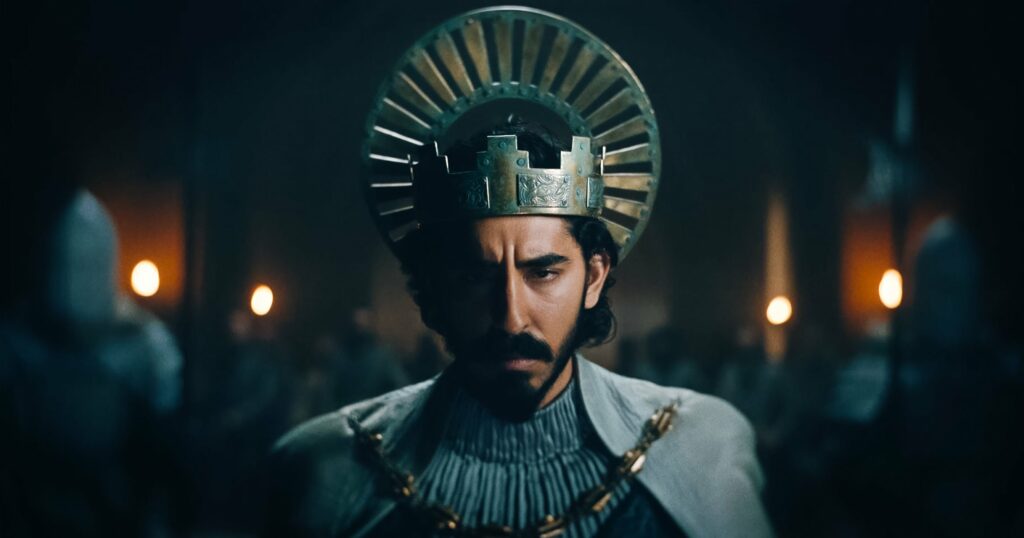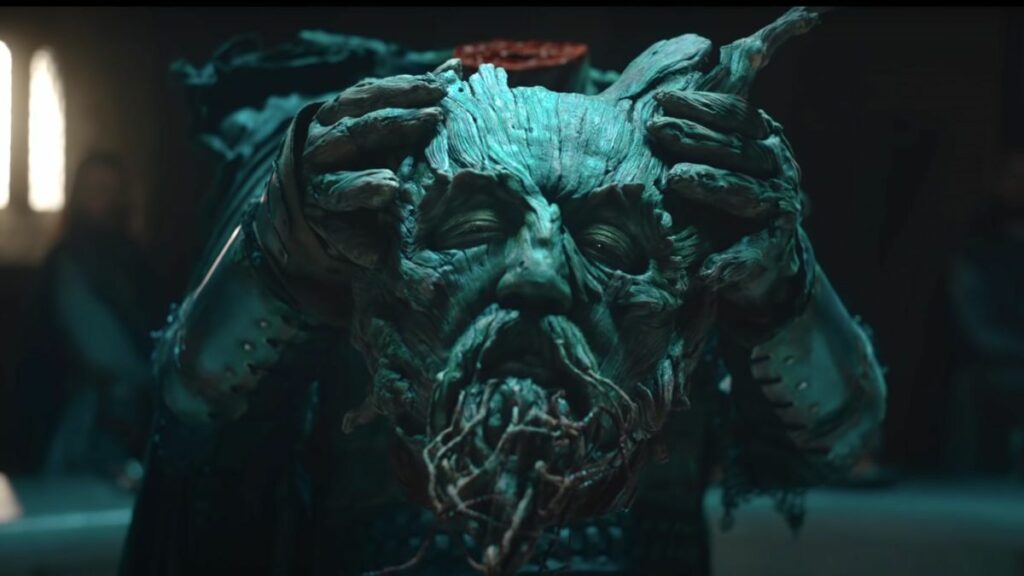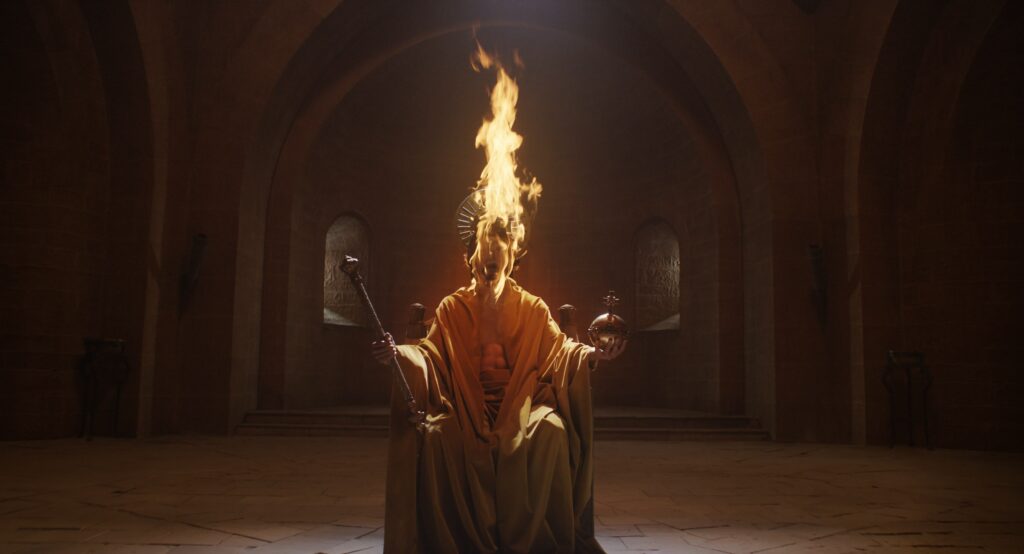The fantasy genre has always suffered from a kind of cinematic fatigue; apart from a wildly inconsistent but prodigious run of blockbusters in the late ‘80s/‘90s (Excalibur, Legend, Sword Of The Valiant and of course, the classic Disney’s A Kid In King Arthur’s Court) most directors have proved frustratingly inept at adapting it to the big screen. Tonal inconsistencies, rubber swords, ludicrous dialogue, Martin Lawrence… there are no shortage of culprits when trying to figure out why fantasy doesn’t occupy a similarly hallowed place in audiences’ hearts as sci-fis or westerns do.
Factor in the all-conquering, awards-gobbling cinematic singularity that is the Lord Of The Rings trilogy at the turn of the millennium – which simultaneously brought the fantasy era to a shuddering climax and practically rendered any subsequent attempts at the genre null and void. Although Game of Thrones was crushing it on the small screen, sneaking fantasy into the mainstream behind a clever smokescreen of boobs and eye-stabbing, ‘big-screen medieval fantasy’ as a concept still looked about as lively as a week-old pile of plague victims.

Praise the spooky tree-gods, then, for David Lowery. The filmmaker’s eccentric back-catalogue deals predominantly with folk heroes and fables (The Old Man And The Gun and Ain’t Them Bodies Saints), mythology, monsters and legacy (Pete’s Dragon and A Ghost Story), so in retrospect, the leap to this particular Arthurian legend makes perfect sense. Lowery has updated and transformed the 14th Century poem Sir Gawain And The Green Knight into something narratively streamlined, chiselling away the superfluous elements from the original text, expanding upon others, and inventing new sequences; the result is a staggeringly cinematic exploration of legacy, chivalry and the natural order of time and decay.
After a brief dream sequence featuring a thrilling goat-on-goose brawl (you’ll know when you see it), Dev Patel’s endearing scoundrel Gawain is introduced. Suffering from a nasty hangover, he languidly prepares to attend the lavish Yuletide banquet held by his weary but honourable uncle King Arthur (Sean Harris) and aunt Queen Guinevere (an underused Kate Dickie). Later that evening, the titular Green Knight (Ralph Ineson– half man, half Ent) rides into Camelot mid-feast bearing a big axe and a perplexing challenge to all the knights and lords in attendance: if any man is brave or skilled enough to strike a blow against him in combat – “be it a scratch on the cheek or a cut on the throat” – they will win his aforementioned axe. As always, there is a catch: a year from the day, they must travel to the Green Chapel, whereupon the wound will be returned. Sounds terrible, but as anyone who has found themselves accidentally stuck in a 10- hour Christmas Risk marathon will attest to, there are worse things in this world.

As expected, the headstrong but imprudent Gawain leaps forward, seeing in the offer his shortcut to greatness: a chance to prove himself in front of the King and his Knights. Strangely, the Green Knight bares his neck instead of taking up arms and Gawain lops his head off with a single blow, seeking to outsmart the emerald-hued party pooper. Before Gawain can even think about doing a celebratory Fortnite dance, however, the Green Knight’s body strides forward, picks up his head, and delivers the ultimate “no u”, ominously repeating his request: “One year hence,” before galloping back into the gloom.
The vast majority of the film is spent with Gawain as he navigates the fields, fells, valleys and mountain ranges of medieval England, a vast, lived-in landscape which feels both familiar and at times very alien. Lowery’s unhurried, occasionally surrealist camera movements pitch the aesthetic of The Green Knight’s environments somewhere between Interstellar’s impossible, extra-terrestrial worlds and the blasted highland panoramas of Valhalla Rising; twisting, panning and tracking hypnotically, implying the passage of time, showing scenes-within-scenes and – in one superbly cryptic sequence – inverting a full 180 degrees after an encounter with a group of peaceful but apathetic giants. More similar in tone and pacing to The VVitch than Willow, the luxurious tempo and occasional narrative ambiguity on display here won’t be for everyone, but encourages contemplation and allows for plenty of time to appreciate Andrew Droz Palermo’s outstanding, dreamlike cinematography.
Dev Patel is perfectly cast as Gawain – the OG anti-hero – who, in this adaptation, proves many leagues from the perfect specimen of knightly prowess he is often depicted as. This Gawain is an impulsive, indecisive goon with good intentions and the conviction to see them through, but only a superficial understanding of ‘honour’ to guide him as he stumbles from one calamitous chivalric trial to the next. In one instance, Gawain refuses to compensate a young scavenger who offers directions, ending up stripped of his possessions and hog-tied by the aggrieved wanderer and his crew within a few hours of leaving Camelot.

Elsewhere he tries to shake down the ghost of St. Winifred for payment for retrieving her head from the bottom of a lake and – worst of all – refuses some sage advice from big screen’s coolest talking fox since Tails from Sonic and the one that says ‘chaos reigns’ in Antichrist. Gawain’s journey is an equal mix of failure and triumph, and Patel plays his undersized heroism perfectly; skinny and naïve enough to convince as a vulnerable idealist, but displaying a steely, resolute quality that makes his eventual knightly revelation feel earned and genuine. In fact, it’s a marvel how frequently Gawain approaches full-on ‘unlikeable’ before Patel pulls him back from the brink with his humanising performance, realising in the process one of 2021’s most complex and relatable on-screen protagonists.
To say too much would spoil the games and mis-directions of the film’s third act, but suffice it to say that The Green Knight stands as a unique, mystifying, densely packed adaptation that expertly utilises the language of cinema to breathe new life into one of the oldest and most enduring of the surviving Old English texts. Gawain’s journey through the trials and his final confrontation at the Green Chapel casts off many of the stuffier elements of chivalric romanticism, as well as vigorously re-arranging the story’s components into a modern, unique exploration of greatness and honour in the face of certain death, and the value of reading the rule book before launching into the game.
Unless it’s Risk.
The Green Knight is out now, distributed by A24.
